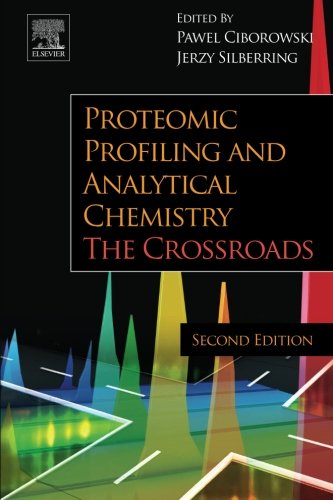

Most ebook files are in PDF format, so you can easily read them using various software such as Foxit Reader or directly on the Google Chrome browser.
Some ebook files are released by publishers in other formats such as .awz, .mobi, .epub, .fb2, etc. You may need to install specific software to read these formats on mobile/PC, such as Calibre.
Please read the tutorial at this link: https://ebookbell.com/faq
We offer FREE conversion to the popular formats you request; however, this may take some time. Therefore, right after payment, please email us, and we will try to provide the service as quickly as possible.
For some exceptional file formats or broken links (if any), please refrain from opening any disputes. Instead, email us first, and we will try to assist within a maximum of 6 hours.
EbookBell Team

4.1
70 reviewsProteomic Profiling and Analytical Chemistry: The Crossroads, Second Edition helps scientists without a strong background in analytical chemistry to understand principles of the multistep proteomic experiment necessary for its successful completion. It also helps researchers who do have an analytical chemistry background to break into the proteomics field. Highlighting points of junction between proteomics and analytical chemistry, this resource links experimental design with analytical measurements, data analysis, and quality control. This targeted point of view will help both biologists and chemists to better understand all components of a complex proteomic study.
The book provides detailed coverage of experimental aspects such as sample preparation, protein extraction and precipitation, gel electrophoresis, microarrays, dynamics of fluorescent dyes, and more. The key feature of this book is a direct link between multistep proteomic strategy and quality control routinely applied in analytical chemistry. This second edition features a new chapter on SWATH-MS, substantial updates to all chapters, including proteomic database search and analytical quantification, expanded discussion of post-hoc statistical tests, and additional content on validation in proteomics.